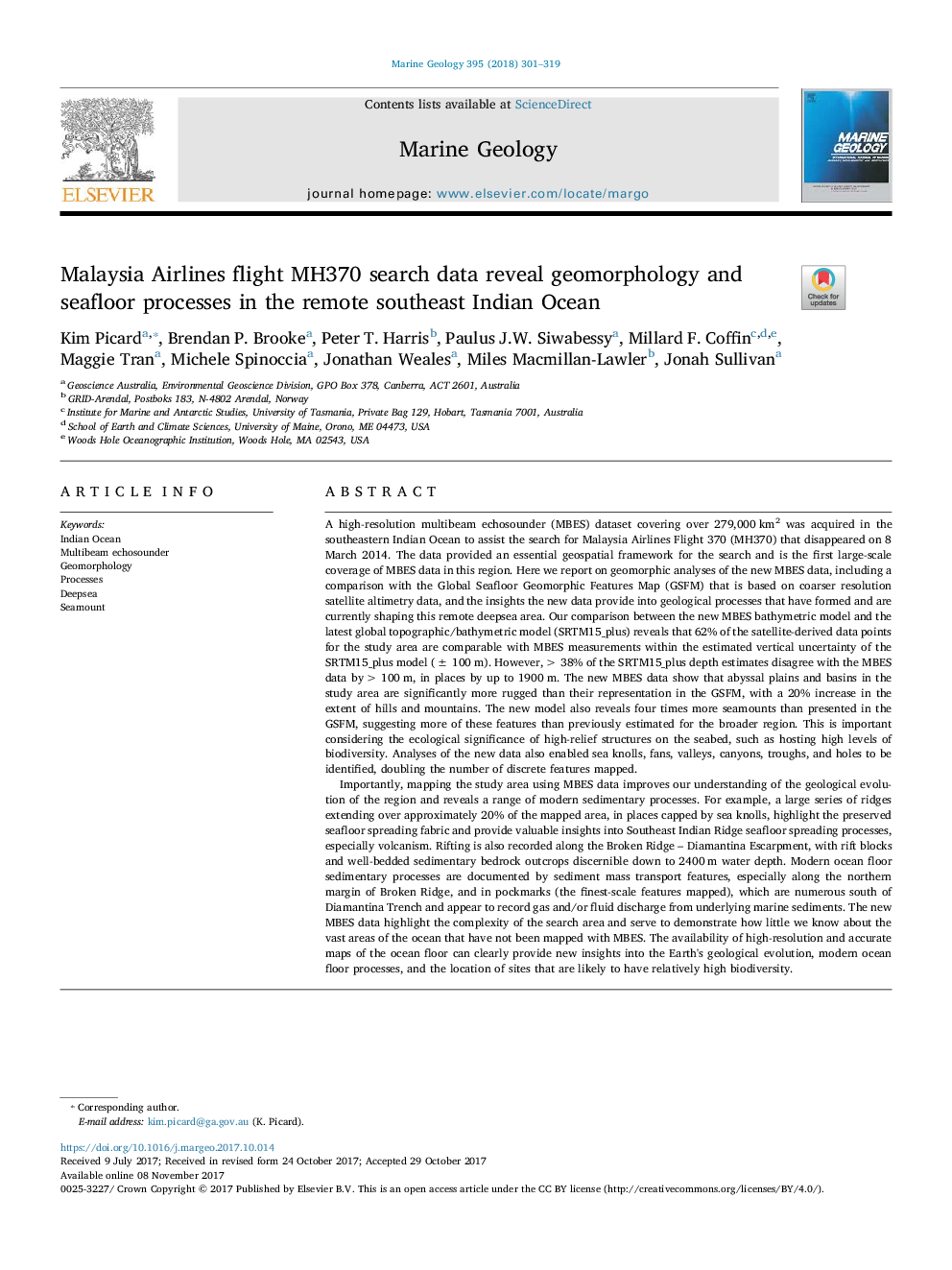| Article ID | Journal | Published Year | Pages | File Type |
|---|---|---|---|---|
| 8912044 | Marine Geology | 2018 | 19 Pages |
Abstract
Importantly, mapping the study area using MBES data improves our understanding of the geological evolution of the region and reveals a range of modern sedimentary processes. For example, a large series of ridges extending over approximately 20% of the mapped area, in places capped by sea knolls, highlight the preserved seafloor spreading fabric and provide valuable insights into Southeast Indian Ridge seafloor spreading processes, especially volcanism. Rifting is also recorded along the Broken Ridge - Diamantina Escarpment, with rift blocks and well-bedded sedimentary bedrock outcrops discernible down to 2400Â m water depth. Modern ocean floor sedimentary processes are documented by sediment mass transport features, especially along the northern margin of Broken Ridge, and in pockmarks (the finest-scale features mapped), which are numerous south of Diamantina Trench and appear to record gas and/or fluid discharge from underlying marine sediments. The new MBES data highlight the complexity of the search area and serve to demonstrate how little we know about the vast areas of the ocean that have not been mapped with MBES. The availability of high-resolution and accurate maps of the ocean floor can clearly provide new insights into the Earth's geological evolution, modern ocean floor processes, and the location of sites that are likely to have relatively high biodiversity.
Related Topics
Physical Sciences and Engineering
Earth and Planetary Sciences
Geochemistry and Petrology
Authors
Kim Picard, Brendan P. Brooke, Peter T. Harris, Paulus J.W. Siwabessy, Millard F. Coffin, Maggie Tran, Michele Spinoccia, Jonathan Weales, Miles Macmillan-Lawler, Jonah Sullivan,
